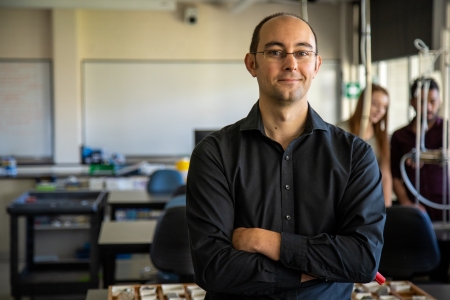ACADEMIA
Artificial Intelligence can save time, help us tackle some of the world's most pressing problems

According to investigators from Charles Darwin University in Australia, AI could allow researchers to dedicate more time to the world's most pressing problems. CDU groundwater hydrology expert Dr. Dylan Irvine and researchers from the University of Neuchatel in Switzerland have explored the opportunities and limitations of using new capabilities of ChatGPT for hydrological analyses in a recently published paper. ChatGPT can translate between coding languages, plot data, generate codes, and analyze data in a hydrological science setting, saving time for researchers with limited or no coding ability. However, users need to check the accuracy of results because ChatGPT is prone to errors. By automating basic tasks using AI, researchers can free up time to focus on more challenging tasks, contributing to solving the world's most pressing problems.
Dr. Irvine, who began experimenting with AI tools to analyze data, said integrating AI into his processes has become a significant asset to his work.
“Computer codes that used to take me days to write can now be written in an hour or less. Solving problems and overcoming issues is much quicker now,” Dr Irvine said.
“It used to be that if I wanted to learn a new technique, such as something in machine learning, I'd often have to spend a long time reading and trawling the web for examples. Often there was one part that was hard to set up and without it, the entire code doesn't work.
“Now, fixing errors or learning new approaches is much easier. I'm expanding my skillset into adjacent disciplines. I'm a groundwater researcher by training but I can now do a lot more surface water-related work.”
Dr Irvine said carefully and appropriately incorporating AI to automate low-level tasks could have a positive impact on the hydrological sciences by freeing up time to focus on complex problems common in the field.
“I'm an earth and environmental scientist. It's amazing to get to study how the world works, and the work that we do is as important now as ever,” Dr Irvine said.
“However, we struggle to convince students to study earth science, and/or water resources. This shortage basically means that there's more work to do than we have the capacity for. Automating basic tasks using AI can free up time so that we can focus on more challenging tasks.”

